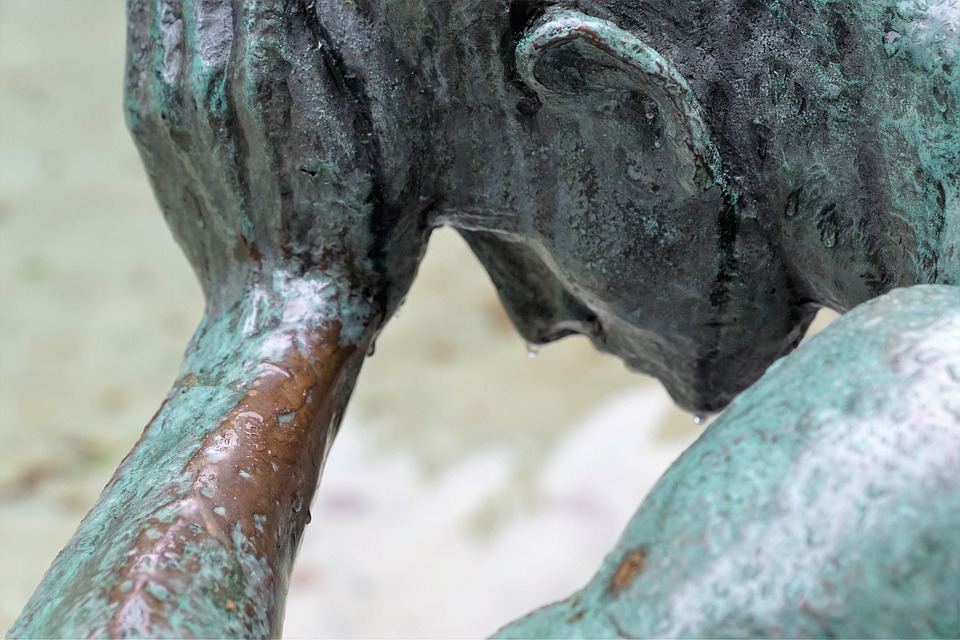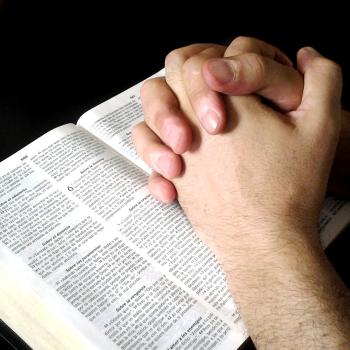As a pastor, the topic of “doubt” comes up often in my conversations with people.

Image via Pixabay
It may be doubt about God, in general. Or doubt that He will act. Or doubt in His goodness. Or doubt in the trustworthiness of Scripture. Or doubt in His Church, or often, His Christians. Or doubt in just about anything relating to Him, really.
Suffice to say, it is a common enough feeling amongst God’s people, at least from time to time.
And yet, there is something else that often comes along with doubt:
Guilt.
We’re not supposed to feel doubt, we’re supposed to be people of faith! Didn’t Jesus call His disciples to “just believe?” (Lk 8.50). Doesn’t the Word say that without faith, it is impossible to please God? (Heb 11.6) Isn’t faith the basis of our salvation, as opposed to works? (Eph 2.8-9)
So then, good and sincere Christians, having a time of struggle in the faith department, not only have to contend with the wrestling match of belief, they also feel shamed while they are working through it, feeling like they must be disappointing or angering God.
And to be sure, in His time on earth, at times Jesus seems to express frustration or astonishment at peoples’ lack of faith (Mt 13.58; Mk 6.6).
Yet, consider another story of one struggling with doubt – John the Baptist.
2 When John, who was in prison, heard about the deeds of the Messiah, he sent his disciples 3 to ask him, “Are you the one who is to come, or should we expect someone else?”
4 Jesus replied, “Go back and report to John what you hear and see: 5 The blind receive sight, the lame walk, those who have leprosy are cleansed, the deaf hear, the dead are raised, and the good news is proclaimed to the poor. 6 Blessed is anyone who does not stumble on account of me.” (Mt 11.2-6)
We must remember that John was a great prophet who knew, apparently somehow even while in utero (Lk 1.41-44), that Jesus was the Messiah.
God had clearly told John that Jesus was the Messiah (Jn 1.29-31).
John had personally witnessed the glory of Heaven open up at Jesus’ baptism, seen the Spirit descend upon Him, and heard the Father’s voice thunder (Lk 3.21-22; Jn 1.32-34). And yet even all of that was not enough to protect him from a season of doubt.
Why?
I’m guessing it’s because he was in prison. John had been locked up for engaging in that most noble yet consequence-worthy pursuit of speaking truth to power, calling out King Herod for his immorality (Lk 3.19-20). Herod responded to the rebuke with incarceration for John.
After a fruitful season of preparing the way for the Messiah, after the glorious baptism of Christ where God’s Heavenly Kingdom seemed imminent, after a lifetime of preparation and service to God and to Israel, John’s experience was not the victorious and overcoming triumph that one might have expected when God’s promised Messiah arrived.
Instead of victory and blessing, John languishes in a prison cell. One can’t blame him for wondering if there was a chance he had gotten the Messiah wrong. If Jesus was the Messiah, why was John in jail? It would seem to be a perfectly reasonable concern.
So John inquires, sending his followers to Jesus. “Are you really Him, or are we still waiting for Him?”
And we must note that Jesus does not respond with anger or rebuke.
We also note that Jesus doesn’t actually specifically answer the question – at least not with a simple “yes” or “no.”
Instead, Jesus answers with a sort of riddle: Here are all the things that are happening since I arrived. Don’t stumble on me, now.
The list of activities were all things that people expected the Messiah to do, according to the Scriptures. So in that sense, Jesus is giving a clear enough answer – yes, I am He – but He does so in such a way as to make John confront his doubts.
Essentially, Jesus seems to answer: “Well, here are all the things that the Messiah was supposed to do, and here are all the things that I am doing – so you tell me!”
Jesus doesn’t rebuke John for his honest and sincere questioning – He meets John in his doubt, encourages him with the truth of Scripture, and exhorts him not to give up.
Previous centuries of Church history have given more space for seasons of doubt and struggle than current times do. Much of modern North American Christianity, at least in the evangelical wing, emphasizes the victorious aspects of the faith, and has more difficulty time explaining the darker times.
This can cause people to stumble when doubts and fears come, because they feel like they aren’t “supposed” to feel that way.
Yet, as one example, St. John of Cross wrote a famous work in the 16th century called Dark Night of the Soul. In it, the teaching makes clear that times of doubt are normal, times of struggle are normal, times where God seems far off are normal – it should be an accepted and even expected part of the spiritual journey.
Grace is given in the struggle. Compassion is granted to the struggler. And at the very least, when we share our doubts, we are being honest and authentic.
And there is also an understanding that, as we wrestle with these things, if we can keep wrestling, that there is depth and richness on the other side of the struggle. From what we understand in the Gospels, John the Baptist never questioned again, and met his death at Herod’s hand with his head up.
Let us be honest about the struggle, and let us be honest with the Lord, and let us be honest with some companions that we trust. Let us acknowledge that doubt can be a normal part of the journey, so that we may endure it without guilt or shame. And let us partner together to press through, to find the grace of God in the midst of the journey to sustain us, and lead us on to the other side.
********
If you’re enjoying what you read, you can follow Third Way Christians on Facebook or Instagram, or sign up to get new columns emailed to you here! As well, you can track along with Chris’ church teaching at Meadow Brook Church’s YouTube page!
















